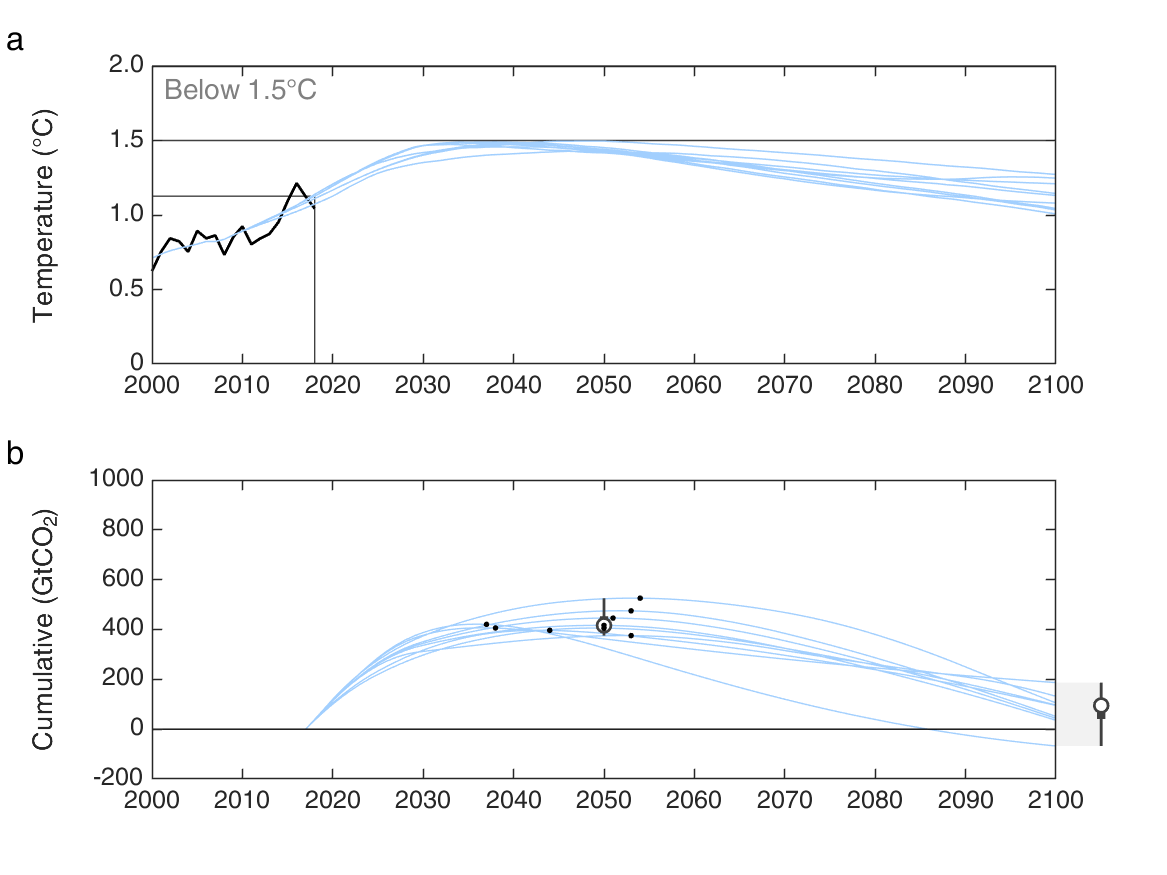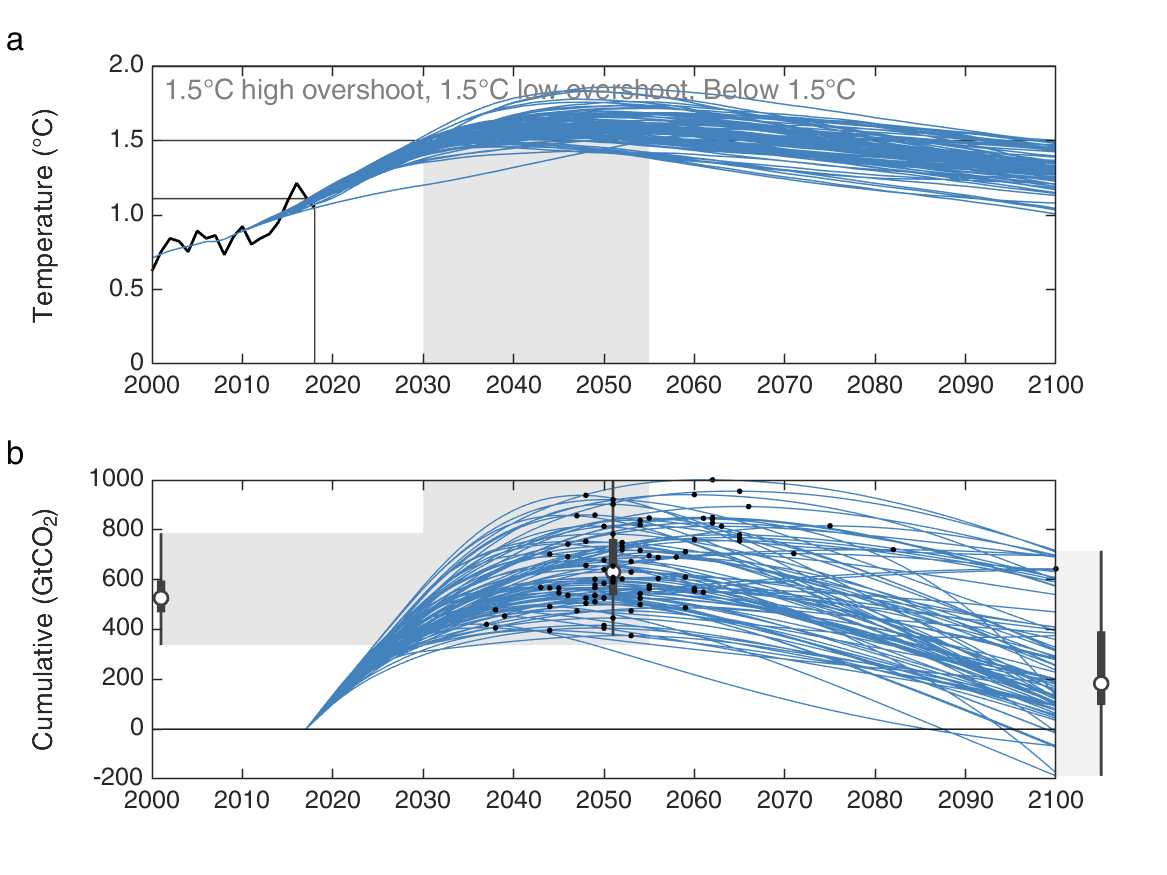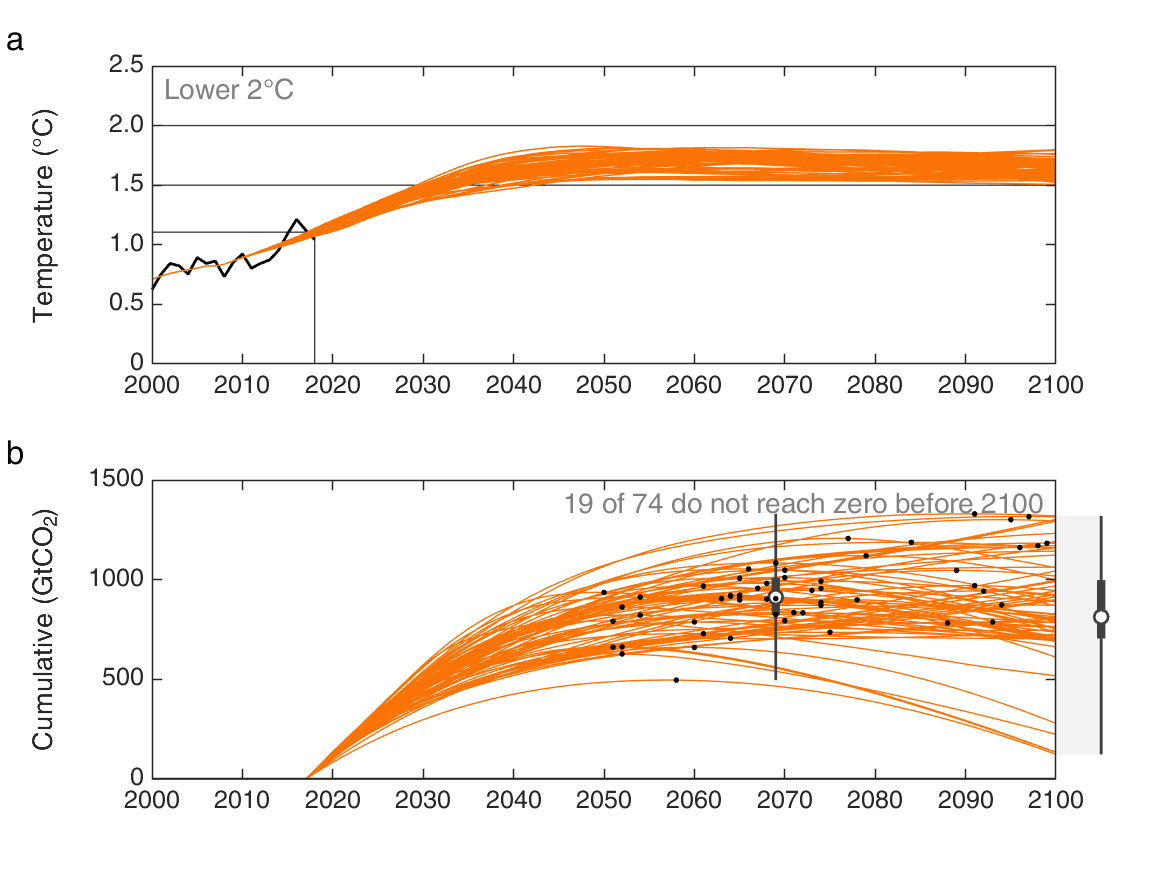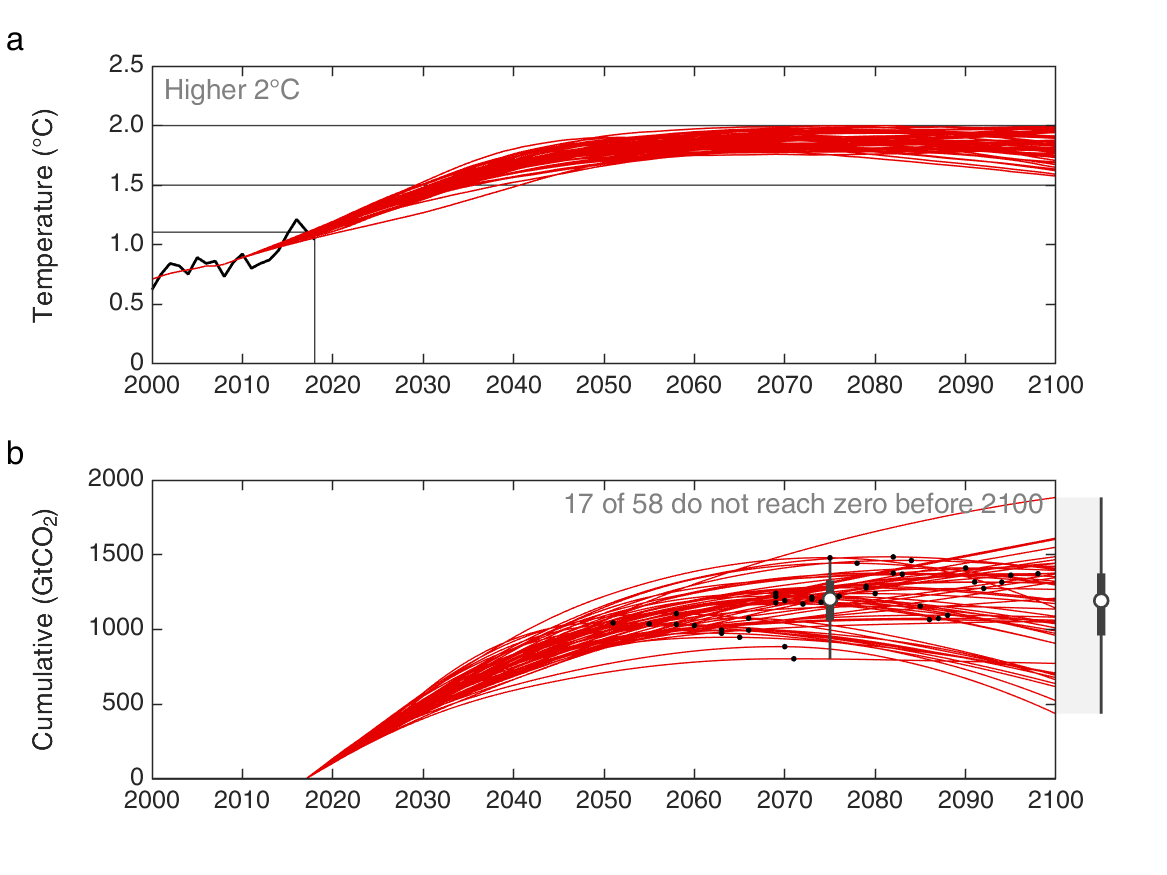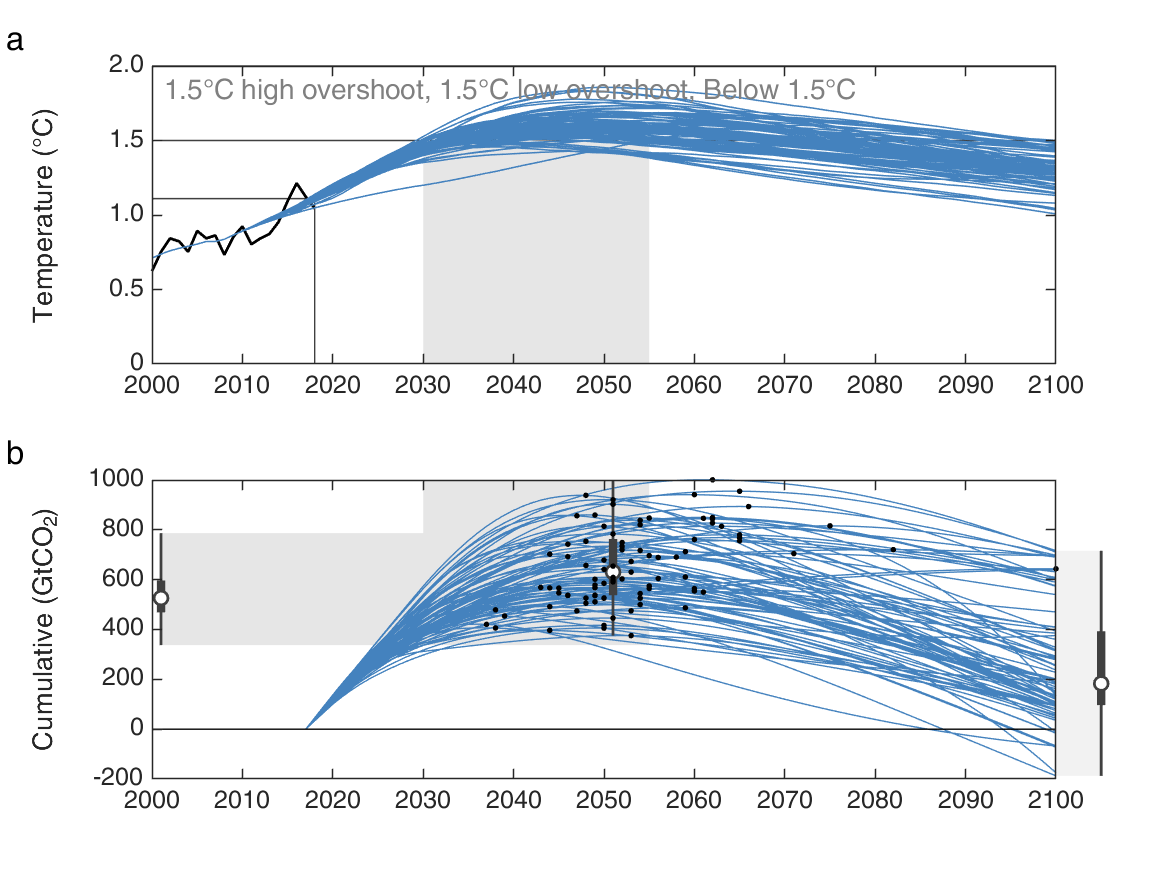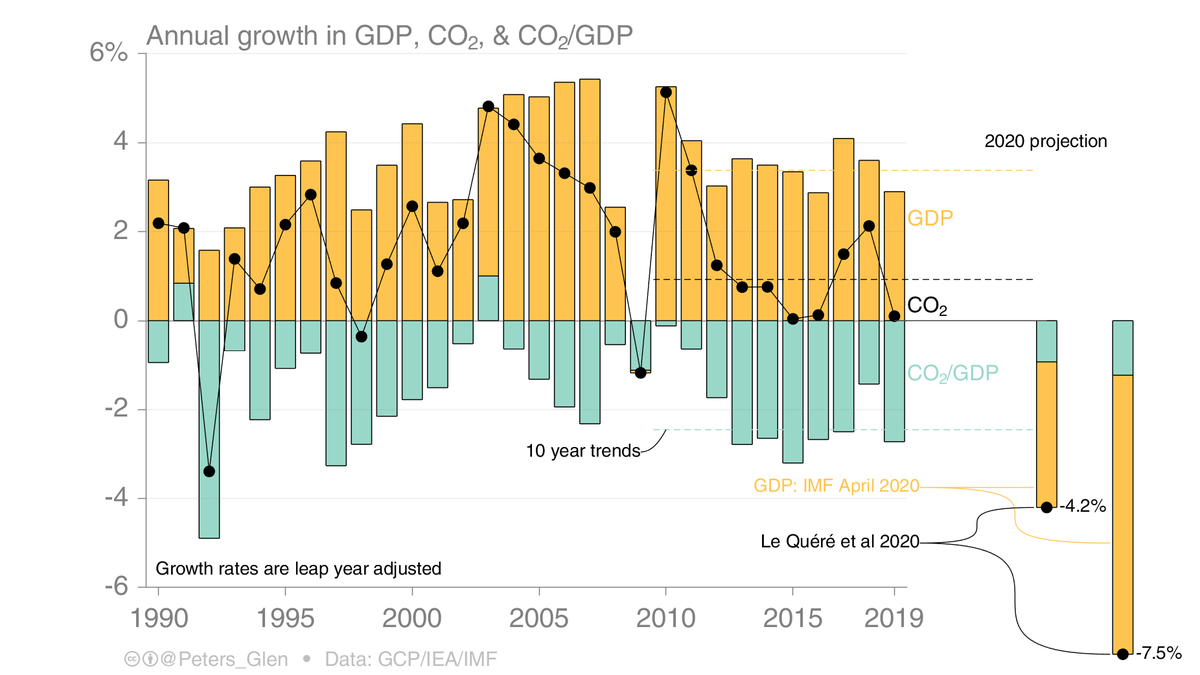The 'Carbon Budget' is the cumulative CO₂ emissions from one point in time to another given a temperature limit, such as exceeding 1.5°C, reaching net-zero (~peak temperature), or to (say) 2100 for a 1.5°C scenario.
cicero.oslo.no/no/posts/klima…
Different definitions have different purposes, but I think that is ok! We can handle it!
They perhaps limit the policy utility of the quantified budgets, but they also open opportunities. Understanding the variations in budgets may give insights into non-CO₂ emissions & other policy relevant aspects.
Blog: cicero.oslo.no/no/posts/klima…
Commentary: rdcu.be/bHT2C
Also see @Oliver_Geden: nature.com/articles/s4156…
/end

